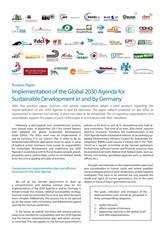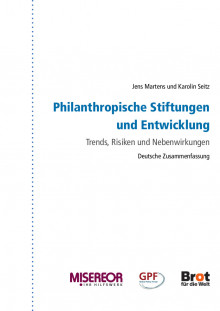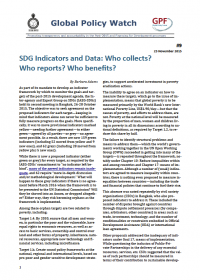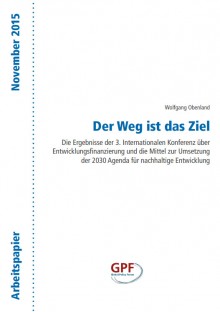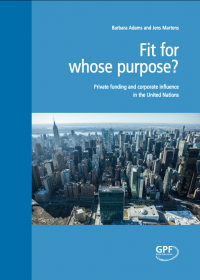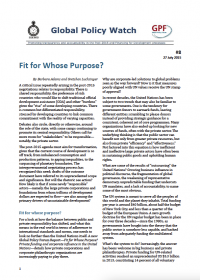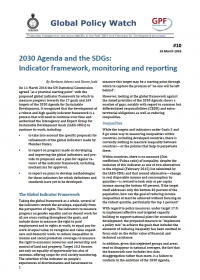
Publikationen
Einfluss privatwirtschaftlicher Akteure in internationalen Politikprozessen
Global Policy Watch Briefing #10
By Barbara Adams and Karen Judd
On 11 March 2016 the UN Statistical Commission agreed “as a practical starting point” with the proposed global indicator framework by which to measure progress towards the 17 goals and 169 targets of the 2030 Agenda for Sustainable Development. It recognized that the development of a robust and high quality indicator framework is a process that will need to continue over time and authorized the Interagency and Expert Group for Sustainable Development Goals (IAEG-SDGs) [...]
Globale Zukunftsziele für nachhaltige Entwicklung
Trends, Risiken und Nebenwirkungen
In der internationalen Entwicklungspolitik hat in den letzten Jahren eine Akteursgruppe in der Grauzone zwischen Zivilgesellschaft und Wirtschaft an Bedeutung gewonnen: Philanthropische Stiftungen.
US-amerikanische Stiftungen wie die Rockefeller Foundation sind bereits seit dem frühen 20. Jahrhundert in der internationalen (Entwicklungs-)Zusammenarbeit aktiv. Aber erst in den letzten Jahren haben sich mit der wachsenden Anzahl von Stiftungen und vor allem mit der Gründung der Bill & Melinda Gates Foundation deren finanzielle Leistungen rapide erhöht. In Zeiten stagnierender öffentlicher Mittel für die Entwicklungszusammenarbeit [...]
Who shapes the agenda?
Global Policy Watch Briefing #9
By Barbara Adams
Die Ergebnisse der 3. Internationalen Konferenz über Entwicklungsfinanzierung und die Mittel zur Umsetzung der 2030 Agenda für nachhaltige Entwicklung
Private funding and corporate influence in the United Nations
"Follow the money” is the recipe for good investigative journalism and Fit for Whose Purpose does precisely that for the institution created to defend global public goods. Digging into the numbers behind the funding of the United Nations, Adams and Martens uncover a trail that leads to corporate interests having a disproportionate say over the bodies that write global rules. This book shows how Big Tobacco, Big Soda, Big Pharma and Big Alcohol end up prevailing and how corporate philanthropy [...]
Global Policy Watch Briefing #8
By Barbara Adams and Gretchen Luchsinger
A critical issue repeatedly arising in the post-2015 negotiations relates to responsibility. There is shared responsibility, the preference of rich countries who would like to shift traditional official development assistance (ODA) and other “burdens” given the “rise” of some developing countries. There is common but differentiated responsibility, stressed by developing countries to link common commitment with the reality of varying capacities.
Debates also circle, directly or otherwise, around the role of the state, with [...]


